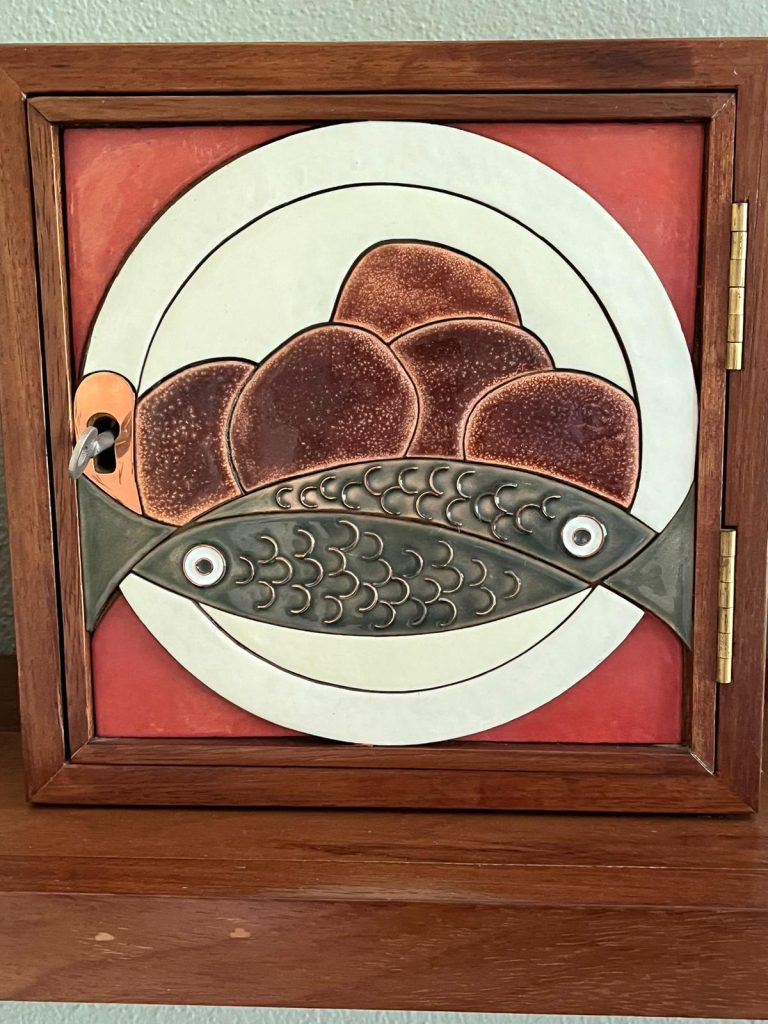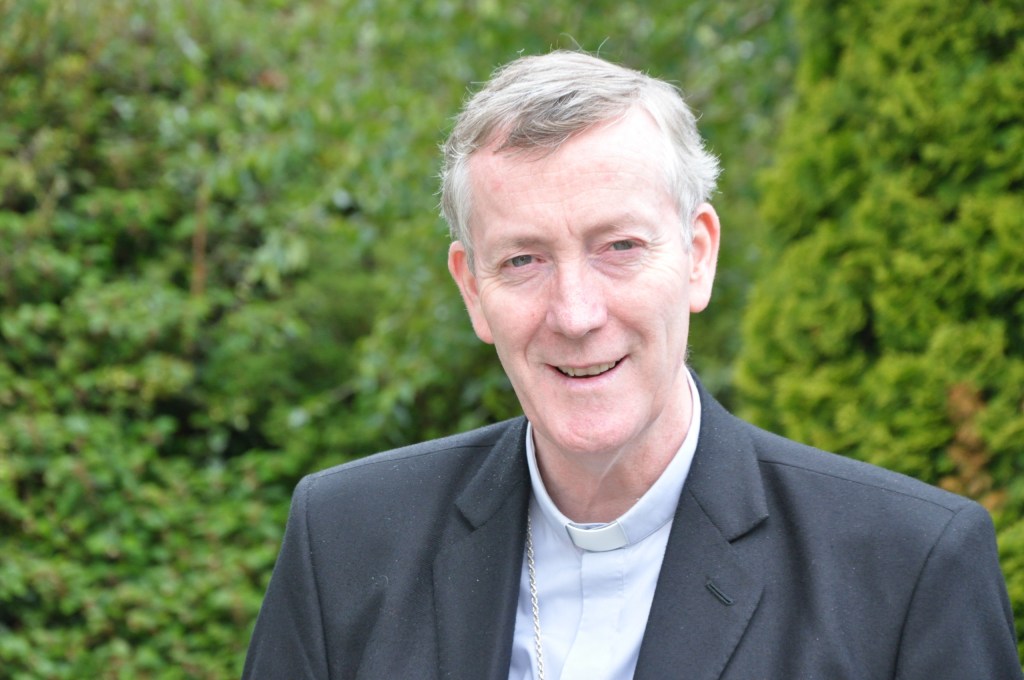Eighteenth Sunday in Ordinary Time – Year B: 04.08.24
Mass @ 10.30am – Cathedral of the Assumption, Carlow
11th Anniversary of Episcopal Ordination
Introduction:
The Eighteenth Sunday of Ordinary Time offers enough material to sustain us for life. Last Sunday the focus was on feeding the five thousand; this week it’s on the food that lasts beyond that single feeding, the food that lasts forever. God’s greatest gift to us, eternal life. Chapter 6 of John’s Gospel on the Eucharist synopsizes matters wonderfully with that verse: “I am the bread of life. He who comes to me will never be hungry, he who believes in me will never thirst”[1].
I believe that the Covid pandemic did enormous damage to our Sunday practice, now we can choose to tune in from afar, to surf the net for our celebrant or celebration of choice, and to do so from our bed or couch. When we are sick and unable to get out to Mass, this makes enormous sense and the webcam is our best friend; but too many have resorted to using it alone, as if our obligation is fulfilled, our duty is done.
We are missing the gathering, the proclaiming, the remembering, the feeding, the nourishing and the sending out.
For failing to satisfy our hunger, for resorting to quenching our thirst elsewhere, we pray for forgiveness …
Homily:
A book I have for years called ‘The Wedding Sourcebook’[2] tells me an eleventh anniversary is called a ‘Steel Anniversary’. ‘Happy Steel’, doesn’t have the same resonance as ‘Happy Silver’ or ‘Happy Golden Anniversary’! Steel is a little like saying, whatever you are having yourself! While my source book is specifically speaking of weddings, the same word applies to all anniversaries. This morning, I mark my eleventh anniversary as Bishop of Kildare & Leighlin.
Eleven years of building a faith structure that will hopefully last long after our time. I like figures, but they don’t in any way even come near to telling the full picture – ordaining four priests, two of them for our diocese; confirming 24,323, how many of them have allowed the gifts and fruits of the Holy Spirit to flourish in their lives?; ordaining ten to the Permanent Diaconate with six more in formation; commissioning several Ministers of Holy Communion, Ministers of the Word and Parish Pastoral Councils.
Eleven years on I believe the fundamentals of prayer are more critical than ever. When we begin to think it all depends on us, we are losing the sense of that bread that lasts forever, we are restricting ourselves to offering something that may be a good experience, a snack, something very much at surface level but not getting into the roots of our being.
I think of the tabernacle door in the oratory at Bishop’s House. It was designed by the gifted Anne Murphy of Eala Enamels, the door depicts the five loaves and two fish of last Sunday’s gospel. What rests inside is not just food for the day, but food that guarantees eternal life. Spending time in prayer there every morning and late in the evening is what nourishes my journey. A journey that brings me into every one of our 56 parishes, working alongside our priests and people.
It’s interesting that the first work of the early church was an act of remembrance, we can read accounts of it in the Gospels, in the Acts of the Apostles and in the Epistles. While John’s gospel puts a strong emphasis on the ritual of the washing of the feet, there is little of the gathering for the supper, except for that line that always speaks to me: “Taking the piece of bread, he (the Iscariot) immediately went out. It was night”[3].
Jesus as the Bread of Life. Today’s gospel is essentially a dialogue or a tutorial between Jesus and the people – the people who were fed from the five barley loaves and two fish are hungry again. Don’t miss that request by the people to Jesus when he offers them ‘bread from heaven’ – “Sir, give us that bread always”[4]. And maybe that’s our request today! We have it at every celebration of Mass; we have it in our time of Adoration; we have it in every Church we visit during these summer days where we genuflect or bow and offer a prayer.
Another book I have is called ‘The Bishop of the Abandoned Tabernacle’. It tells the story of St. Manuel Gonzalez, born in Seville in 1877. His parents and family were very devout. From the youngest age he developed a great respect for the tabernacle even joining a children’s choir who would perform with great reverence before the Blessed Sacrament. He was ordained to the priesthood in September 1901. His first parish appointment was a lesson to him in how abandoned the tabernacle had become in his church. I wonder in 2024 is there a very real risk of abandoning our tabernacles, our altars, our worshipping communities, because of the convenience that online Masses offers?
St. Manuel Gonzalez’s story is no different to Blessed Carlo Acutis, who developed a huge love as a young man for the Eucharist, particularly Eucharistic Miracles. The Eucharist sustains us, nourishes us, “where two or three are gathered together in my name, there am I in the midst of them”[5] This morning on my Steel Anniversary, I am making an appeal across the diocese to those who have not returned to public worship to consider now doing so.
The Sunday Mass is where we continue to experience the living presence of Christ – in the gathering with our brothers and sisters, hungry for a love that does not disappoint, a word that does not fade away and a bread that does not fail to satisfy. We experience the living presence of Christ in the ministry of the ordained priest, the presider at our Mass, sometimes like us all broken and bruised but anointed to stand as the Alter Christus, another Christ. We experience the living presence of Christ in the sacredness of the text that is proclaimed. We experience the living presence of Christ in the sacrament of Christ’s body and blood. We experience the living presence of Christ in the sacred music we enjoy, because when we sing, we pray twice. All of this risks being sacrificed at the altar of webcam convenience. The Sunday Mass does not by any means exhaust the Christian keeping of Sunday, but it remains at its heart. I recall my visits to St. Brigid’s Terrace in Mullingar for ten years on a First Friday morning! Ginger Lacey’s welcome as I walked into his home, “Come in Father, … “You’re both very welcome”. What a beautiful understanding of the living presence of Christ, the Bread of Life. Today Ginger and his wife of 50 years, Moira, are no doubt deepening that personal relationship with Jesus in eternity. In coming to Mass, we are saying that we simply cannot manage on our own resources, we need Jesus and we need one another, as we recall the International Eucharistic Conference theme of Dublin in 2011: ‘communion with Christ and communion with one another’. May we enjoy both. Blessings to all of you on this my Steel Anniversary
[1] Jn.6:35
[2] Barillo, Madeline: ‘The Wedding Sourcebook’, 1998, Lowell House, Illinois, USA, pg. 71
[3] Jn.13:30
[4] Jn.6:34
[5] Mt.18:20

